As a hummus lover, I am often asked, “What does hummus taste like?” Hummus is a Middle Eastern dip or spread made from chickpeas, tahini, lemon juice, garlic, and olive oil. It has a smooth and creamy texture that melts in your mouth.
Hummus is a versatile dish that can be eaten as a dip with pita bread, vegetables, or crackers, or used as a spread in sandwiches or wraps.
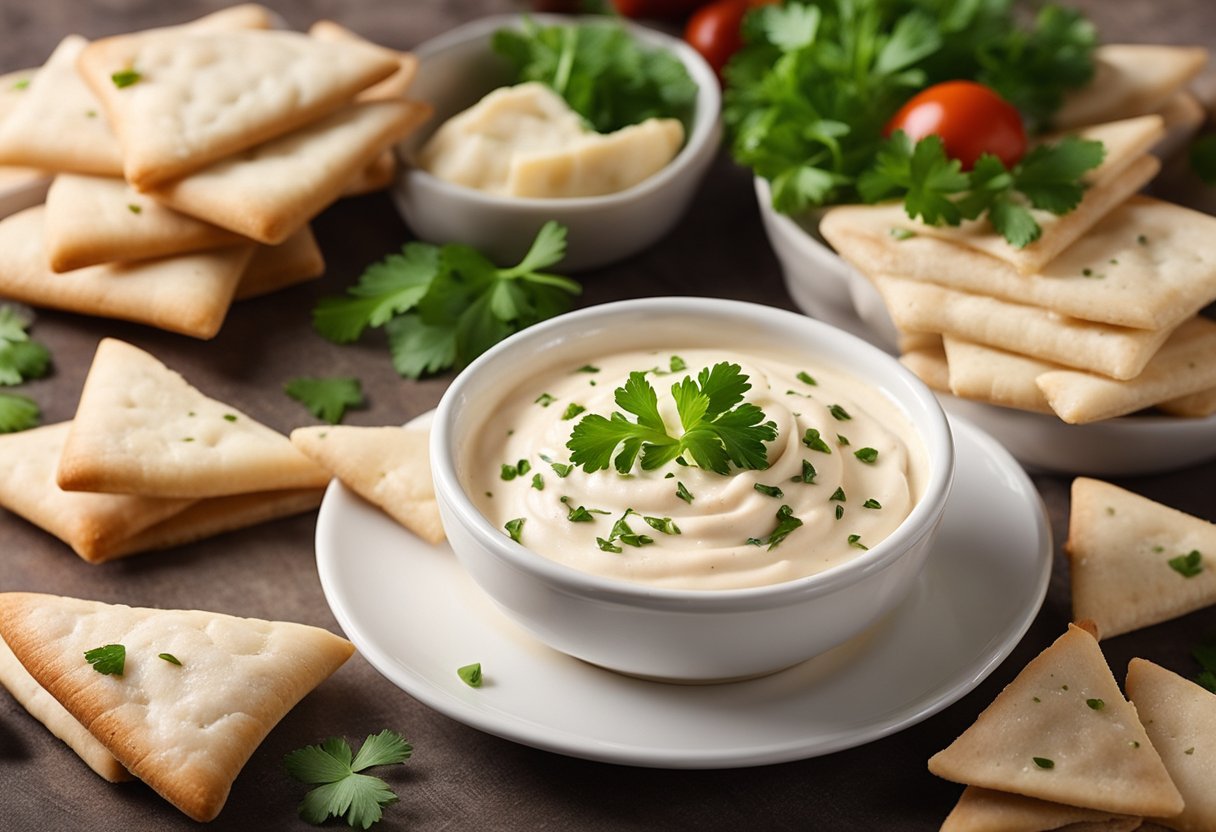
The taste profile of hummus is hard to describe because it has a unique flavor that cannot be compared to any other dish.
The main flavor of hummus comes from chickpeas, which have a nutty and earthy taste. Tahini, which is a paste made from sesame seeds, adds a creamy and slightly bitter taste to the hummus.
Lemon juice gives hummus a tangy and citrusy flavor, while garlic adds a pungent and savory taste. Olive oil adds a subtle fruity and buttery taste to the hummus. The combination of these ingredients creates a complex and delicious taste that is hard to resist.
Key Takeaways
- Hummus is a Middle Eastern dip made from chickpeas, tahini, lemon juice, garlic, and olive oil.
- The taste profile of hummus is unique and hard to describe, with a nutty, creamy, tangy, pungent, and savory flavor.
- Hummus is a versatile dish that can be eaten as a dip or spread, and it has many health benefits, such as being high in protein, fiber, and healthy fats.
What is Hummus
As a food lover, I have always been fascinated by the Middle Eastern cuisine, and one of my favorite dishes is hummus.
Hummus is a creamy and delicious dip made from chickpeas, tahini, olive oil, garlic, and lemon juice. It is a staple in Middle Eastern cuisine and has become increasingly popular worldwide due to its taste and health benefits.
Chickpeas are the primary ingredient in hummus and are a great source of plant-based protein and fiber. They are also rich in vitamins and minerals, making hummus a healthy snack option.
Olive oil is another essential ingredient in hummus and is known for its heart-healthy benefits. Garlic adds a savory flavor to the dip, while lemon juice provides a tangy taste.
Tahini is a paste made from sesame seeds and is a crucial ingredient in hummus. It adds a nutty flavor and a creamy texture to the dip. Sesame seeds are also rich in healthy fats, protein, and minerals, making hummus a nutritious snack option.
Hummus is a versatile dip that can be used as a spread or a dip for chips, crackers, veggies, and other snacks. It is a vegan and plant-based protein source, making it an excellent option for those following a plant-based diet.
In conclusion, hummus is a delicious and healthy dip that is a staple in Middle Eastern cuisine. It is made from chickpeas, tahini, olive oil, garlic, and lemon juice and is a great source of plant-based protein, fiber, and healthy fats.
It is a versatile dip that can be used as a spread or a dip for various snacks, making it an excellent option for a healthy and tasty snack.
Taste Profile of Hummus
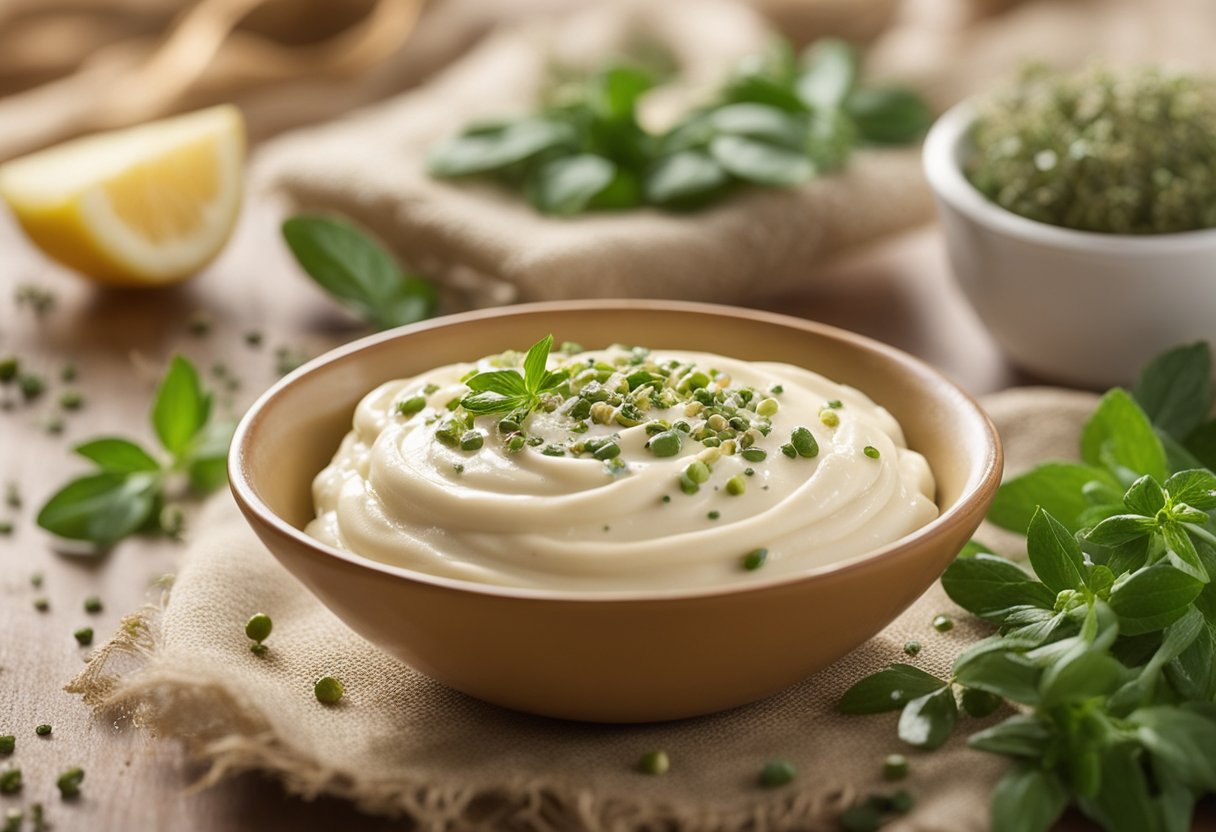
Hummus is a versatile dip that has become increasingly popular in recent years. It is made from chickpeas, tahini, olive oil, garlic, and lemon juice.
Hummus has a unique taste profile that is both savory and nutty. In this section, I will discuss the basic taste elements, texture and consistency, and variations in taste of hummus.
Basic Taste Elements
Hummus has a rich and creamy texture that melts in your mouth. The taste is sour, nutty, and savory with hints of lemon and garlic.
The flavor is umami, which is a savory taste that is often described as meaty or brothy. Hummus has a slightly grainy texture from the chickpeas, which adds to its overall flavor profile.
Texture and Consistency
Hummus has a smooth and creamy texture that is similar to a paste. It has a melt-in-your-mouth consistency that is not too thick or too thin. The texture is perfect for dipping vegetables, pita bread, or crackers.
Variations in Taste
Hummus can be made in a variety of flavors. Homemade hummus is often flavored with red peppers, beetroot, sweet potatoes, or feta cheese.
Chocolate hummus is a popular variation that has a sweet and creamy taste. Flavored hummus has become increasingly popular in recent years, and there are now many different varieties available.
In conclusion, hummus has a unique taste profile that is both flavorful and satisfying. Its savory, nutty, and umami flavor is complemented by its smooth and creamy texture.
Hummus is a versatile dip that can be enjoyed with a variety of foods, and its many variations make it a popular choice for snack time or parties.
Ingredients Impacting Taste
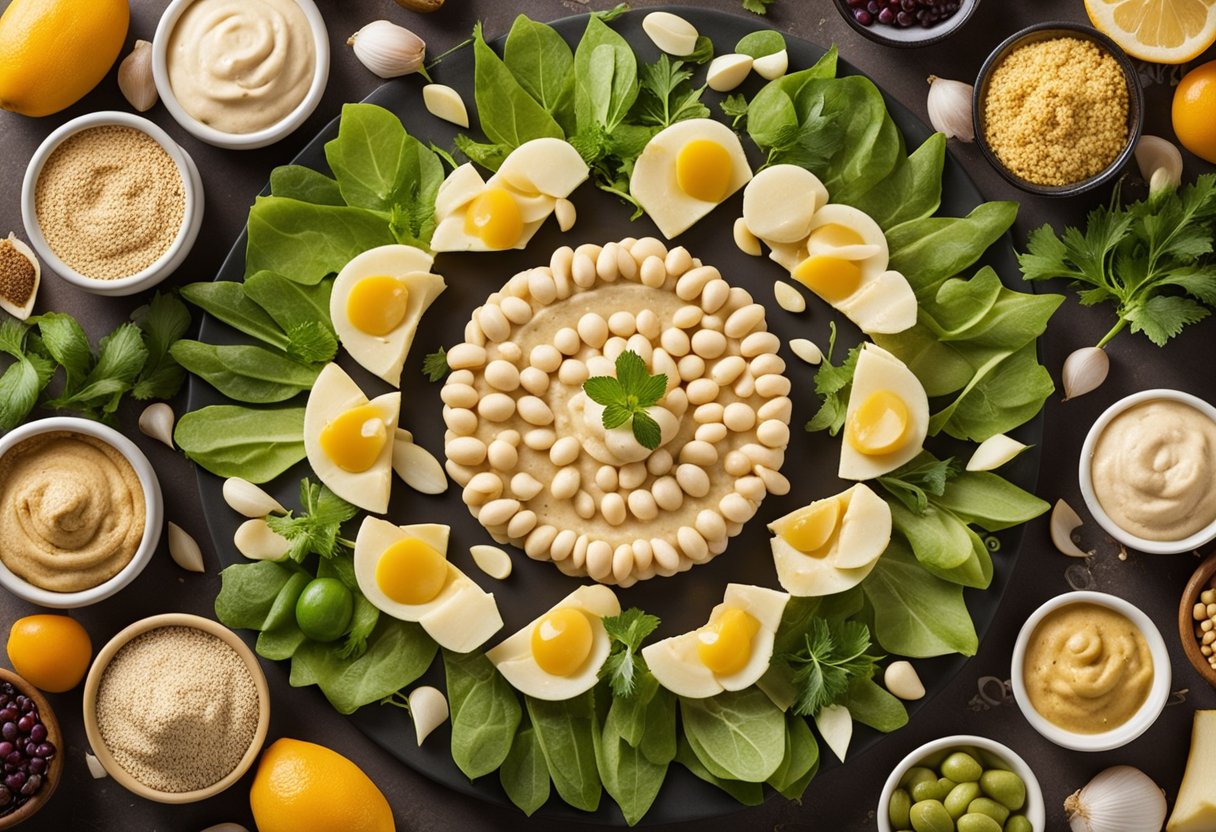
Primary Ingredients
Hummus is primarily made of chickpeas, which have a mild, nutty flavor that is slightly earthy and savory. Chickpeas are the main ingredient in hummus, and they give it its distinct flavor. Chickpeas are also rich in protein and fiber, making hummus a healthy snack option.
Olive oil is another primary ingredient in hummus, and it gives it a smooth and creamy texture. Olive oil also adds a fruity and slightly bitter taste to hummus. The quality of the olive oil used in hummus can greatly impact its taste.
Garlic is a common ingredient in hummus, and it gives it a pungent and slightly spicy taste. Garlic also has a strong aroma that can enhance the overall flavor of hummus.
Lemon juice is another primary ingredient in hummus, and it gives it a tangy and slightly sour taste. Lemon juice also helps to balance out the flavors of the other ingredients in hummus.
Tahini is a paste made from sesame seeds, and it is a key ingredient in hummus. Tahini gives hummus a nutty and slightly bitter taste. The quality of the tahini used in hummus can also impact its taste.
Salt is an essential ingredient in hummus, and it helps to enhance the flavors of the other ingredients. Salt also helps to balance out the sweetness and acidity of the other ingredients in hummus.
Additional Ingredients
Cumin is a spice commonly used in hummus, and it gives it a warm and slightly earthy taste. Cumin also has a strong aroma that can enhance the overall flavor of hummus.
Paprika is another spice commonly used in hummus, and it gives it a smoky and slightly sweet taste. Paprika also adds a vibrant color to hummus.
Water is used to thin out the consistency of hummus, and it can impact its overall taste. The amount of water used in hummus can impact its thickness and creaminess.
Parsley is a common herb used to garnish hummus, and it adds a fresh and slightly bitter taste. Parsley also adds a pop of color to hummus.
Avocado and tomato are not traditional ingredients in hummus, but they can be added to enhance its taste. Avocado adds a creamy and slightly sweet taste, while tomato adds a tangy and slightly acidic taste.
How to Eat Hummus
https://www.youtube.com/watch?v=jF2-QDl0JWM
As a dip or spread, hummus is incredibly versatile and can be enjoyed in many ways. Here are some ideas on how to eat hummus:
- With crackers or bread: Spread hummus on crackers or bread for a quick and easy snack. Pita bread is a classic choice, but any type of bread or cracker will work.
- In sandwiches: Use hummus instead of mayo or mustard in your sandwiches. It adds a creamy texture and a delicious flavor that complements many different types of fillings.
- With veggies: Dip raw veggies like carrots, celery, or bell peppers into hummus for a healthy and satisfying snack. It’s a great way to get in some extra veggies and fiber.
- With chips: Tortilla chips, pita chips, or any type of chip will taste delicious with hummus. It’s a perfect party snack or movie night treat.
- With french fries: Believe it or not, hummus makes a great dip for french fries. The creamy texture and savory flavor pair perfectly with crispy fries.
- With falafel: Falafel and hummus are a match made in heaven. Spread hummus on a pita and add some falafel for a delicious and filling meal.
- On its own: Of course, you can always eat hummus on its own with a spoon. It’s that good.
Hummus is also a great ingredient to have on hand for quick and easy meals. Add it to wraps, salads, or bowls for a boost of flavor and nutrition. The possibilities are endless!
One thing to keep in mind when eating hummus is that it has a tangy flavor from the lemon juice. If you’re not a fan of lemon, you may not enjoy hummus as much.
However, there are many different variations of hummus that use different ingredients and spices, so it’s worth trying a few different types to find one that you love.
Making Hummus at Home
I love making hummus at home because it’s easy, delicious, and I can control the ingredients. To make homemade hummus, all you need is a food processor and a few simple ingredients.
Here’s my go-to recipe for homemade hummus:
Homemade Hummus Recipe
- 1 can (15 oz) chickpeas, drained and rinsed
- 1/4 cup fresh lemon juice
- 1/4 cup tahini
- 1-2 garlic cloves, minced
- 2-3 tablespoons olive oil
- 1/2 teaspoon ground cumin
- Salt to taste
- Water as needed
- In a food processor, blend the chickpeas, lemon juice, tahini, garlic, olive oil, cumin, and salt until smooth.
- If the hummus is too thick, add water 1 tablespoon at a time until it reaches your desired consistency.
- Taste and adjust seasoning as needed.
That’s it! Homemade hummus is that simple. You can adjust the flavors to your liking by adding more garlic, lemon juice, or tahini. You can also experiment with different spices like paprika or cayenne pepper.
When making homemade hummus, I like to use cups or tablespoons to measure the ingredients. This ensures that I get the right ratios and consistent results every time.
Overall, making hummus at home is easy, cost-effective, and delicious. Give it a try and impress your friends and family with your homemade hummus skills.
Health Benefits of Hummus
As a health-conscious person, I’m always on the lookout for nutritious snacks that I can enjoy without feeling guilty. Hummus is one such snack that has gained immense popularity in recent years, and for good reason. Here are some of the health benefits of hummus that make it a great addition to any diet:
Rich in Nutrients
Hummus is made from chickpeas, which are packed with essential nutrients such as protein, fiber, iron, and phosphorus. It also contains other vitamins and minerals that are essential for maintaining good health.
Heart-Healthy
Hummus is a heart-healthy food as it contains healthy fats that can help lower cholesterol levels and reduce the risk of heart disease. It is also a good source of fiber, which can help regulate blood sugar levels and prevent overeating.
Vegan and Vegetarian-Friendly
Hummus is a great snack option for vegans and vegetarians as it is made entirely from plant-based ingredients. It is also a good source of protein, making it an excellent alternative to meat-based snacks.
Helps with Weight Loss
Hummus is a low-calorie and low-fat food that can help with weight loss. It is also a good source of fiber, which can help you feel full for longer periods and prevent overeating.
Provides Energy
Hummus is a great source of energy as it contains complex carbohydrates that can provide sustained energy throughout the day. It is also a good snack option for athletes and fitness enthusiasts as it can help with muscle recovery and repair.
In conclusion, hummus is a nutritious and healthy snack that can provide a variety of health benefits. Whether you’re looking to lose weight, boost your energy levels, or maintain good health, hummus is an excellent addition to any diet.
Storing and Serving Hummus
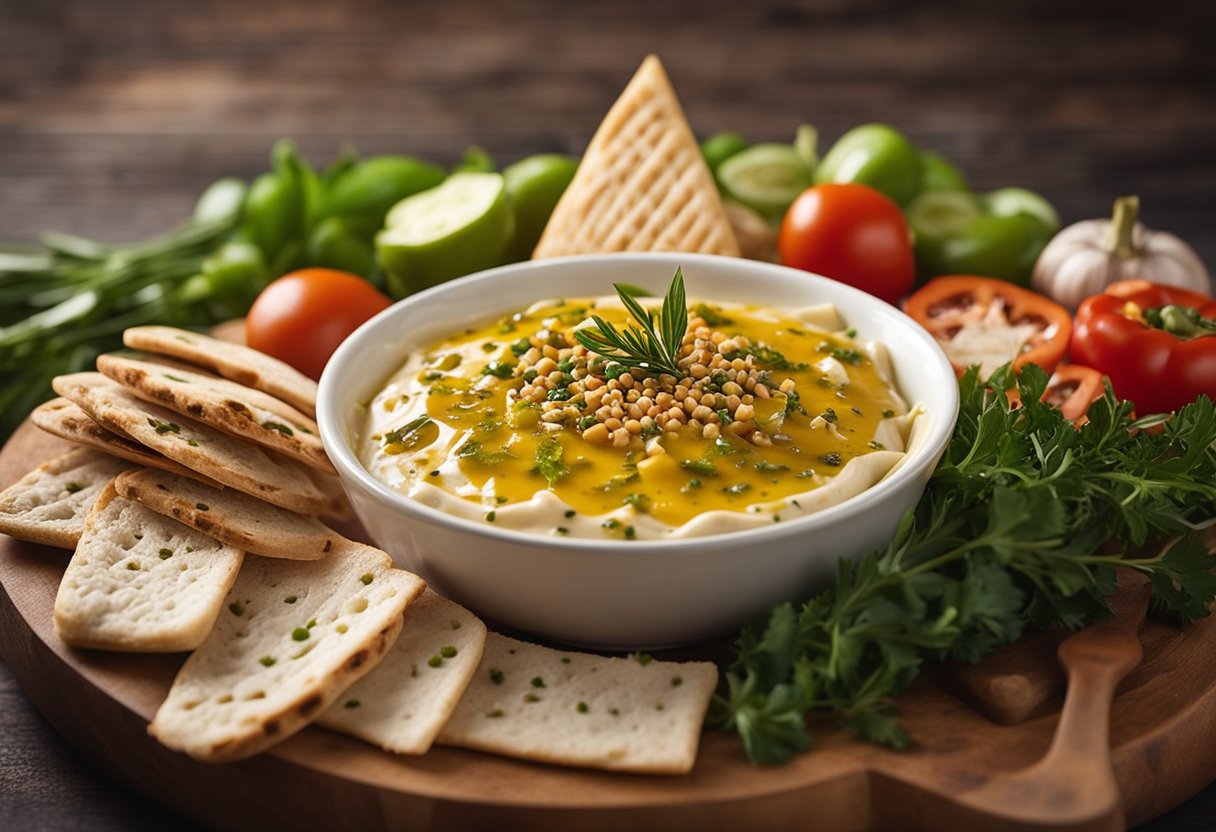
When it comes to storing hummus, it is essential to keep it refrigerated to prevent spoilage. Store-bought hummus usually comes in a sealed container that can be stored in the fridge for up to 7-10 days after opening. It is important to keep it away from direct sunlight and heat to help retain its freshness.
If you are making homemade hummus, it can be stored in an airtight container in the fridge for up to 5 days. It is important to note that homemade hummus can spoil faster than store-bought hummus due to the lack of preservatives.
When serving hummus, it is best to let it come to room temperature before serving. This will help to bring out its flavors and make it easier to dip. If you are serving hummus as a dip, you can place it in a bowl and garnish it with olive oil, paprika, or chopped herbs.
Hummus can also be used as a spread on sandwiches or as a dip for vegetables. It is a versatile dip that can be enjoyed in many ways. If you want to get creative, you can add different flavors to your hummus by mixing in ingredients like roasted red peppers, sun-dried tomatoes, or jalapenos.
In summary, storing and serving hummus is a simple process that can be done in a few easy steps. Keep it refrigerated, let it come to room temperature before serving, and garnish it with your favorite toppings. With these tips, you can enjoy delicious hummus anytime you want.
Frequently Asked Questions
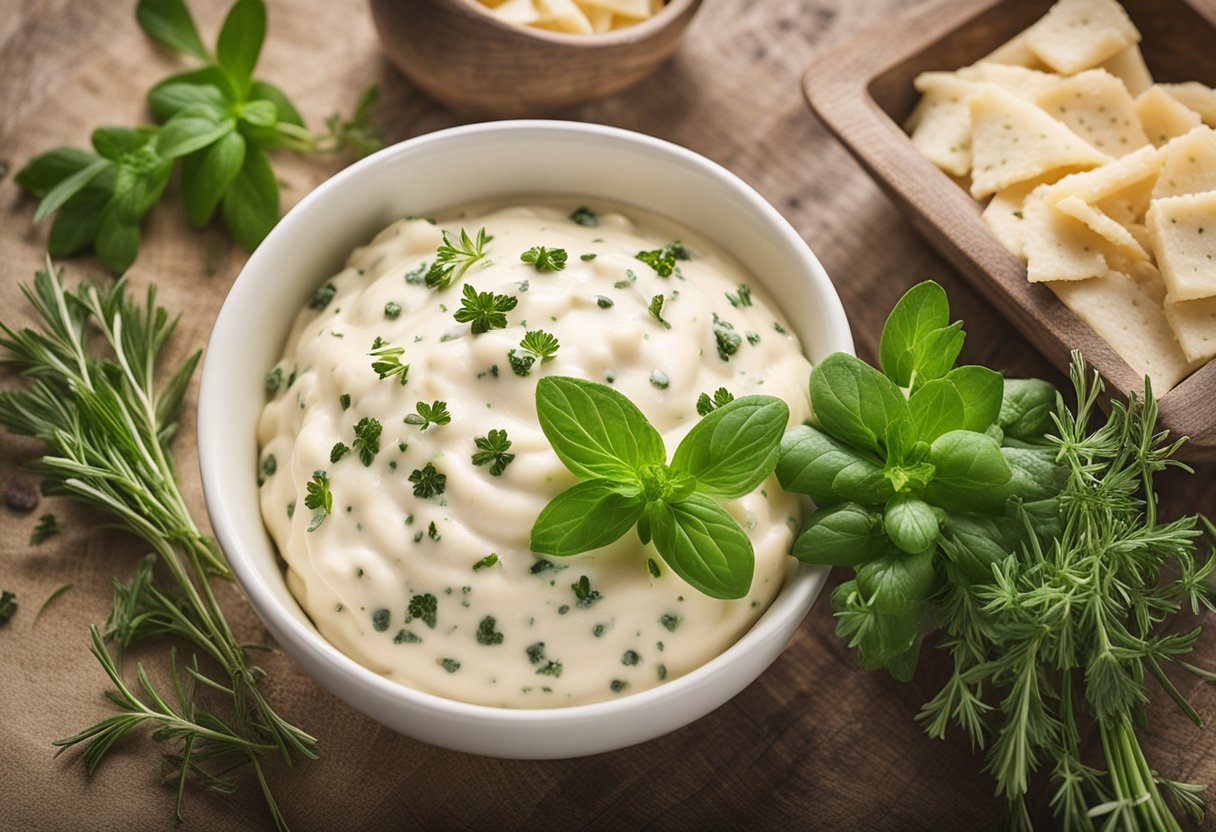
What are some good dipping options for hummus?
Hummus is a versatile dip that pairs well with a variety of foods. Some popular options include pita bread, crackers, carrots, celery, cucumbers, bell peppers, and cherry tomatoes. You can also use hummus as a spread on sandwiches or wraps.
What are the different flavors of hummus?
Hummus comes in a variety of flavors, including classic, roasted garlic, roasted red pepper, spicy, and lemon. Some brands also offer unique flavors like avocado, sun-dried tomato, and jalapeno. You can also make your own hummus and experiment with different flavor combinations.
How would you describe the taste of hummus?
Hummus has a unique flavor that is hard to describe. It is primarily made of chickpeas, tahini sesame paste, and lemon juice, and has a creamy, smooth texture. The taste is nutty, tangy, and slightly salty, with a hint of garlic and olive oil.
Is hummus similar in taste to mayonnaise?
No, hummus is not similar in taste to mayonnaise. While both are creamy and spreadable, mayonnaise is made with eggs and oil, and has a tangy, slightly sweet flavor. Hummus, on the other hand, is made with chickpeas and tahini, and has a nutty, slightly tangy flavor.
What is tahini and how does it affect the taste of hummus?
Tahini is a paste made from ground sesame seeds. It is a key ingredient in hummus, and gives the dip its nutty flavor and creamy texture. Tahini can also be used as a spread on its own, or in other Middle Eastern dishes like baba ganoush.
Is hummus an acquired taste or universally enjoyed?
Hummus has become increasingly popular in recent years, and is enjoyed by many people around the world. While some people may find the taste of hummus to be an acquired taste, others enjoy it right away.
Ultimately, whether or not you like hummus comes down to personal preference.







